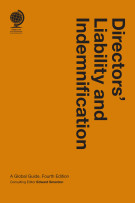UK private copying exception quashed
28 August 2015

Author bio coming soon
Read all about the judicial review decision that quashed the private copying exception - meaning copies for personal use are no longer exempt from copyright law.
Further to an application for judicial review, the High Court has quashed the private copying exception – meaning that from July 17 2015, private copies of content made for personal use are no longer exempt from copyright law. This means that an individual who makes a digital copy of legally acquired music infringes copyright.
What is the private copying exception?
In October 2014 the Copyright and Rights in Performance (Personal Copies for Private Use) Regulations 2014 (SI 2014/2361) introduced the following private copying exception in the United Kingdom:
"The making of a copy of a work, other than a computer program, by an individual does not infringe copyright in the work provided that the copy:
(a) is a copy of:
(i) the individual's own copy of the work; or
(ii) a personal copy of the work made by the individual;
(b) is made for the individual's private use; and
(c) is made for ends which are neither directly nor indirectly commercial."
The exception was intended to legitimise the status quo. Individuals had been making digital copies of legally purchased compact discs or backing up their personal digital music collections in the cloud and were therefore making illegal copies – many with no knowledge that they were infringing copyright.
Why is it no more?
The exception had been introduced on the basis of Article 5(2)(b) of the EU Information Society Directive, which allows member states to introduce an exception to copyright in respect of copies made "by a natural person for private use and for ends that are neither directly nor indirectly commercial, on condition that the rights holders receive fair compensation". The requirement that rights holders be paid fair compensation is fulfilled by a levy system in many European countries, whereby levies are imposed at the point of sale or on import of devices capable of making copies (eg, MP3 players or computers).
This system has never been in place in the United Kingdom and the government chose not to introduce it when the private copying exception was passed, meaning that there was no system to provide rights holders with fair compensation. The British Academy of Songwriters Composers and Authors, the Musician's Union and UK Music 2009 Limited therefore brought a claim for judicial review against the government, questioning whether the private copying exception was compatible with EU law. The High Court found that it was not, on the basis that the government had failed to provide adequate evidence as to the fact that no compensation was required because the harm to rights holders would be minimal.
The latest decision implements that finding by quashing the regulations on a prospective basis. This means that private copies made after July 17 2015 are not legal. The judge declined to rule on the status of copies made when the regulation was in force (between October 1 2014 and July 17 2015), saying:
"It seems to me that the declaration sought raises potentially complex and far reaching issues which it is appropriate to address in the circumstances of private law litigation between a specific right holder and an alleged infringer."
The judge did not refer the question of the meaning of harm to the European Court of Justice (ECJ), as although it was an important issue and was not acte clair , quashing the regulations meant that it was no longer a live issue between the parties. The judge left open the possibility that a reference may be made in future.
What's next?
The UK government may choose to:
- accept that there is no private copying exception;
- reintroduce the private copying exception with levies in the United Kingdom; or
- reintroduce the private copying exception without levies in the United Kingdom, by adducing further evidence as to the harm caused by private copies.
If the government chooses the third option, it is likely to take months, if not years, to gather the necessary evidence. At this stage, the question of the meaning of ‘harm’ may once again become live, causing a reference to the ECJ.
What does this mean in practice?
- The private copying exception was intended to simplify the law in the United Kingdom. However, this decision has arguably complicated matters – rights holders may pursue individuals in respect of private copies made for personal use, except that the position between October 1 2014 and July 17 2015 remains unclear.
- Rights holders will not receive automatic compensation in the form of levies, as they do in much of the rest of the European Union.
- In practice, the decision is unlikely to change the status quo, as music rights holders stand to lose more from a public relations perspective than they would gain from pursing individuals who make private copies of legally purchased music.













Any comments - send us an email